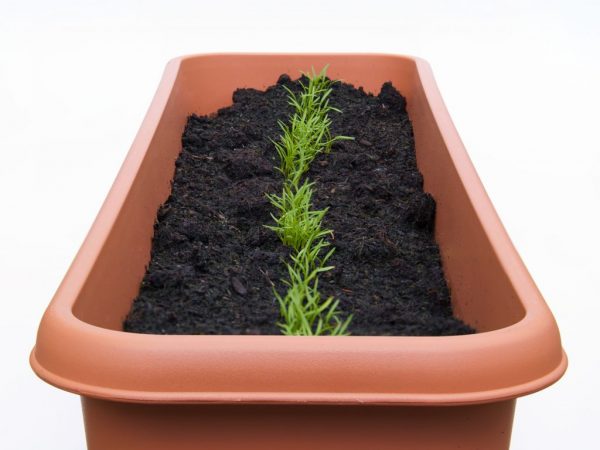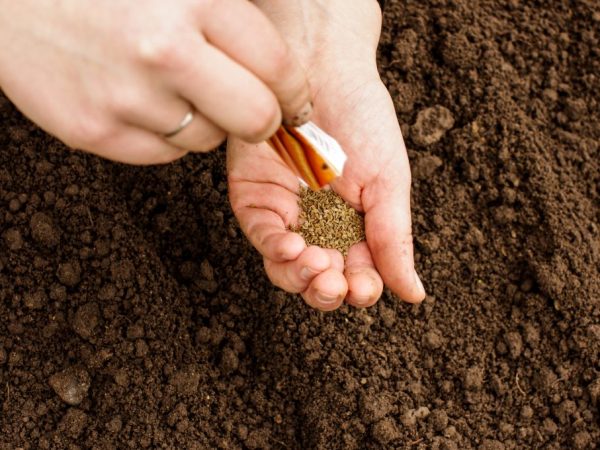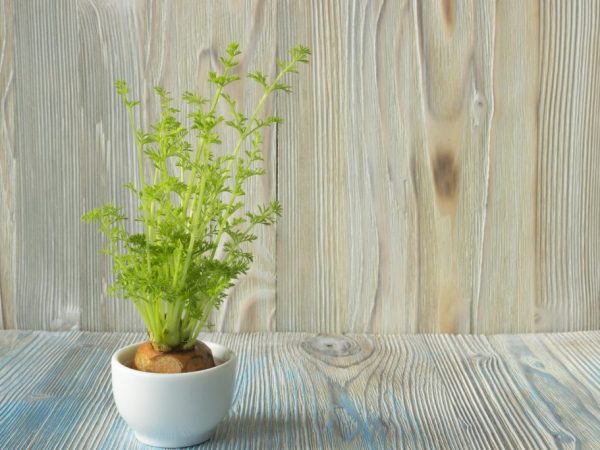How to quickly germinate carrot seeds
In the spring, gardeners stock up on seeds of vegetables and fruits. A popular vegetable is carrots. The difficulty of germination of the seeds of this plant is associated with the abundance of essential oils in their composition. There are several ways to plant carrots so that they sprout quickly.

How to quickly germinate carrot seeds
Germination test
To assess the germination potential of different carrot varieties, an evaluation procedure is carried out. For this, several seeds of different varieties are selected 30 days before planting. They are soaked and planted in a pot. To find out the timing of germination on the soil, they are germinated.
Sowing preparation methods
Carrot seeds will germinate faster when subjected to one of the specific seed treatments. There are several quick methods of germination, so choosing the right one is not difficult. There are several main ways. They are used individually or in combination.
Soak in a bag
Germination is a necessary procedure for all types of seeds. This allows them to get rid of essential oils. Before germinating carrot seeds, do the following:
- the planting material is washed several times under running warm water;
- soaked in clean water until swelling (about 5-7 hours in a gauze bag).
Seeds cannot be soaked for a long time in a solution of potassium permanganate. It is disinfected for 10 minutes.
Soaking in a cheesecloth bag is one of the easiest ways to prepare seeds.
Germination

Seeds will sprout faster in warm ground.
For this method, a garden bed is prepared in advance. The soil must be moist and warm to sow the material immediately:
- The soaked seeds are left on a damp cloth.
- To create a greenhouse effect, they are covered with a film, regularly sprayed with water.
- Soon, future crops will sprout, after which they are soaked with a dry napkin.
- Sowing in the garden is recommended immediately after germination.
Biostimulation
This method is sometimes used in conjunction with soaking.
Its feature is the preparation of special solutions to accelerate germination. When soaking, useful substances are added to the water that help friendly seedlings, strengthen the plant's immunity against diseases and pests.
Recipes for biostimulation solutions:
- Solution with sodium humate. In 1 liter of water with a temperature of about 30 ° C, about 5 g of the substance is diluted. Soak for 10-12 hours.
- Solution with epin. At 1 st. water add 4 drops of the substance. Leave for 10-12 hours.
- Wood ash mortar. In 1 liter of warm water, dilute 1 tbsp. l. ash without top. Future crops are left for a day.
After removing them from the solution, they are dried until flowable and they begin to sow. Sometimes it is advised to "harden" the seeds for quick germination, even in bad weather: they are placed in a damp bag in the refrigerator for 3-5 days. The alternation of heat and cold hardens the future plant.
Disinfection
Before planting, they get rid of dangerous pathogens.
For this, weak solutions of manganese, boric acid and hydrogen peroxide are used. Recommended proportions for these substances:
- Manganese - 1 g in 1 glass of water. Disinfect for 10-15 minutes.
- Boric acid - 1 g per 5 liters of water. Keep in solution for 1 day.
- Hydrogen peroxide - 3% solution. Remove and rinse after 8-10 hours.
It is important not to overexpose the seeds and follow the proportions, otherwise disinfection will lead to the death of the material.

There are a lot of ways to grow seeds.
Bubbling
In order for the carrots to sprout quickly, they are saturated with oxygen. This requires an aquarium processor. The mechanism of action is as follows:
- Future crops are placed in a jar of warm water.
- The air from the aquarium processor should keep the seeds out evenly.
- The water is renewed every 9-12 hours. The total saturation time is 18 to 24 hours.
This method shortens the germination time, and the plant sprouts quickly - up to 6-8 days.
Pelleting
This is one of the most difficult ways to speed up the ascent time. The essence of the process is the enlargement of planting seeds. The germination casing, which enlarges them, consists of:
- strained mullein solution (1 part to 7 parts water);
- liquid starch paste or sugar syrup;
- fermented whey;
- filler: dry peat, sod land, humus.
The seeds in the jar are treated with glue. They should not stick together. The optimum size after pelleting for germination is about 3 mm. A smaller size will not give the desired effect, and a larger layer will prevent ascending. So that they do not stick together, they are sprinkled with ash.
Clustering
This procedure is carried out for the convenience of sowing. The essence of the procedure is gluing seeds onto paper tapes. To carry out gelatinization, you should:
- Prepare paper tapes. Suitable materials: tissue paper, toilet paper, or other loose paper. Other species will interfere with the emergence of carrots.
- Prepare paste. To do this, mix 2-3 tbsp. l. potato starch with 1 liter of water. Cool to room temperature.
The processed seeds are spread with tweezers on a paper tape, keeping a distance between them. They are laid out in the hole of the garden bed and covered with a thin layer of earth.
Landing with paste is carried out in a different way:
- Pour 2-3 sachets into the cooled solution. Stir and pour into a kettle with a narrow spout.
- Poured in a thin stream into the beds, previously watered with water.
- Sprinkle the beds with earth or peat. The seeds germinate under the film, after which it is removed.
What seeds cannot be processed
Without procedures, the time of emergence is from 15 to 20 days. Cannot be processed:
- seeds of hybrids and foreign producers;
- granular;
- treated with fungicides and insecticides.
Seeds treated from pests differ in color. In these cases, accelerating germination will only hurt. They must be sown according to the instructions, without processing.
Conclusion
For the productive germination of carrot seeds, thorough preparation is required. In addition to increasing the chances of plant emergence, its resistance to diseases and pests, such procedures can accelerate germination up to 6-8 days. When processing them, it is important to follow the instructions so as not to spoil the sowing.


